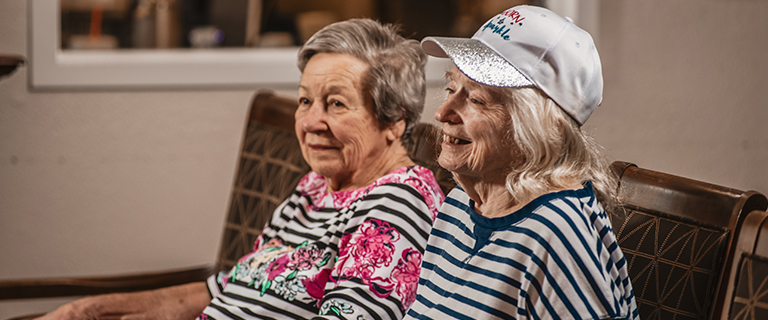A heart attack can be a wake-up call, a moment that changes everything. If you or someone you love has already experienced one, you know how serious it is. The good news? You can take steps to reduce the risk of it happening again.
Preventing a second heart attack starts with understanding what puts your heart at risk, and making lifestyle and care decisions that support long-term heart health. It’s not about overhauling your life overnight. Instead, it’s about building consistent habits, staying connected with your care team, and embracing the support around you.
Whether you’re living independently or with care in an assisted living community, support can manifest in a lot of different ways. What’s important is understanding that you’re not alone.
Why a Second Heart Attack Can Be More Dangerous
After a first heart attack, the heart muscle may already be weakened. This means that another blockage or event can lead to more serious damage, or even be fatal. That’s why post-heart attack care is so critical.
The risk of a second heart attack is highest within the first year after the initial event, but it remains elevated for life. Thankfully, many of the risk factors are manageable with the right support.
Know the Risk Factors
Several common health conditions and lifestyle habits contribute to heart disease. After a heart attack, you’ll want to focus on managing or reducing the following:
- High blood pressure
- High cholesterol
- Diabetes or high blood sugar
- Smoking
- Obesity or inactivity
- Chronic stress
- Poor diet
- Lack of follow-up medical care
Knowing which of these factors applies to you allows your care team to create a personalized plan to lower your risk of another cardiac event.
Steps to Prevent a Second Heart Attack
Take Medications as Prescribed
After a heart attack, most people are prescribed a combination of medications to help prevent another one. These may include:
- Blood thinners to reduce clotting
- Beta blockers to ease heart strain
- Statins to lower cholesterol
- ACE inhibitors or ARBs to reduce blood pressure
- Aspirin for its anti-inflammatory and antiplatelet effects
Even if you’re feeling better, don’t stop taking medications without talking to your doctor. Skipping doses can increase your risk significantly.
Adopt a Heart-Healthy Diet
What you eat affects how your heart functions. A heart-healthy diet can lower blood pressure, improve cholesterol, and help manage weight.
Try focusing on:
- Plenty of fruits and vegetables
- Whole grains like oats and brown rice
- Lean proteins such as fish, beans, and poultry
- Healthy fats like olive oil, nuts, and avocado
- Low-sodium, low-sugar options
It’s also a good idea to limit red meat, fried foods, and processed snacks.
At Parsons House La Porte, residents can enjoy heart-healthy meal options thoughtfully prepared to support their wellness goals. Our team is always available to discuss dietary needs and provide nourishing choices that align with your care plan.
Get Moving Safely
Exercise strengthens the heart, improves circulation, and boosts mood. You don’t have to train for a marathon, just a little movement each day makes a big difference.
Start slow with:
- Short walks
- Gentle stretching
- Light chair exercises
- Senior-friendly fitness classes
Always check with your doctor before beginning a new exercise routine, especially after a heart attack.
Manage Stress
Chronic stress can strain the heart and elevate blood pressure. Learning how to manage stress in healthy ways supports both your emotional and physical wellness.
Try incorporating:
- Deep breathing exercises
- Gentle yoga or tai chi
- Music, art, or journaling
- Relaxing time in nature
- Speaking with a counselor or support group
Sometimes, a calm and peaceful environment—like you might find in a senior living community—can help ease everyday stressors.
Quit Smoking (and Avoid It Entirely)
If you smoke, quitting is one of the most powerful things you can do to prevent another heart attack. Smoking narrows the blood vessels, lowers oxygen levels, and increases clotting, all of which increase the risk to your heart.
If you don’t smoke, avoid exposure to secondhand smoke as much as possible.
Talk to your healthcare provider about programs, medications, or support systems that can help you quit for good.
Stay on Top of Appointments
Regular checkups and follow-ups with your cardiologist or primary care physician are crucial. Your doctor can monitor your heart health, adjust medications, and spot issues before they become serious.
Consider:
- Scheduling routine lab work to check cholesterol and blood sugar
- Asking questions about new symptoms, even if they seem minor
- Keeping a log of blood pressure or weight if advised to
If transportation is a concern, ask your care provider or community staff for support in getting to your appointments.

Signs to What to Watch For
Even after recovery, it’s important to stay alert for warning signs of another cardiac event. These may include:
- Chest pain or discomfort
- Shortness of breath
- Unusual fatigue
- Nausea or dizziness
- Cold sweats
- Pain in the arm, jaw, neck, or back
If you experience any of these symptoms—especially chest pain—call 911 right away.
Support Makes All the Difference
Preventing a second heart attack isn’t just about willpower, it’s about having a support system that encourages and empowers you to live well. Whether it’s family, healthcare providers, or the staff at a senior living community, having people in your corner makes staying on track easier.
Look for an environment that promotes wellness with:
- Healthy meals
- Physical activity opportunities
- Medication management
- Regular wellness checks
- Access to professional care
- A sense of calm, connection, and encouragement
Putting Your Heart First at Parsons House
Your heart has been through a lot, but with the right care, it can keep beating strong. You’ve already taken the most important first step: staying informed and making your health a priority.
At Parsons House La Porte, we support every resident in living with confidence, independence, and heart-focused care. From nourishing meals to engaging activities and professional wellness support, we’re here to help you thrive.Contact us today to learn more about how we can support your heart health and overall well-being in a warm, welcoming community.



